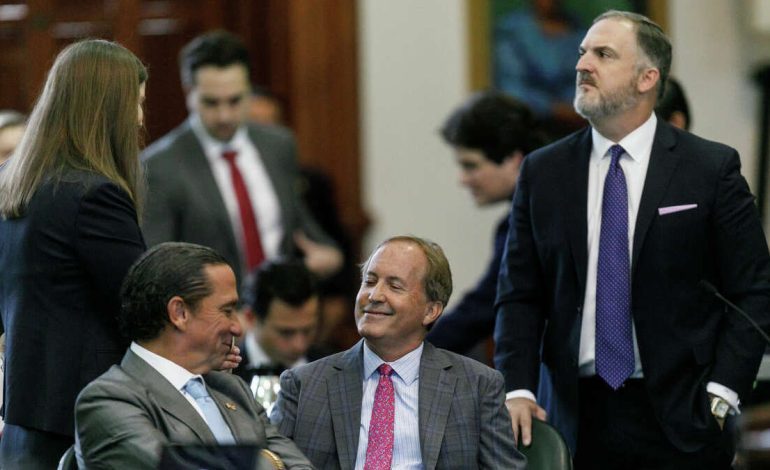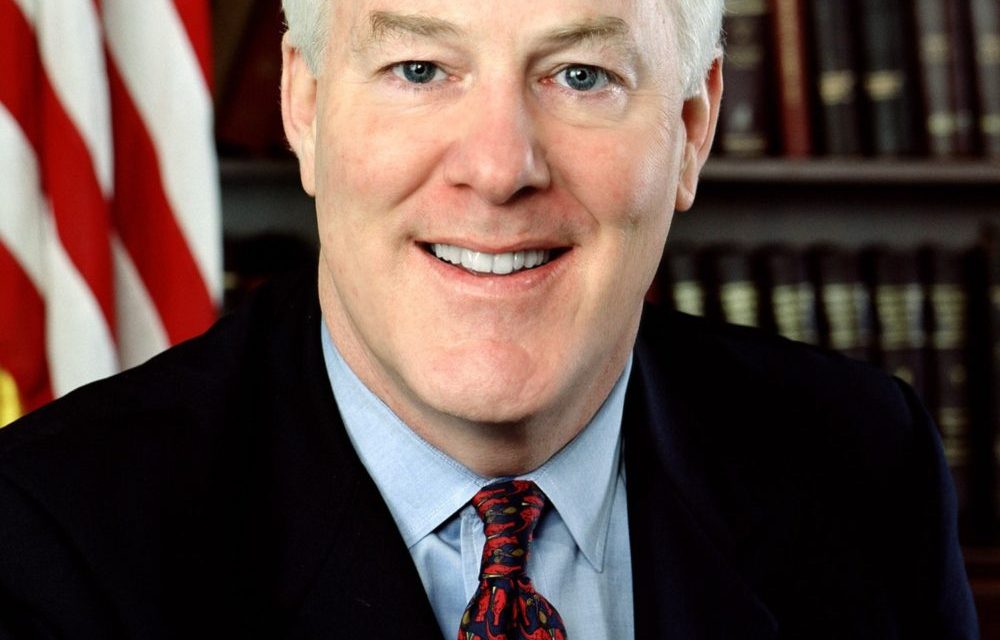
Paxton Acquitted
By Richard Lee
Attorney General Ken Paxton was acquitted Saturday of all sixteen articles of impeachment preferred to the Senate by the House on the last weekend of the regular session in May and dismissed a further four articles held in abeyance until the end of the trial. After two weeks of testimony and deliberation, not a single article received the support of even a simple majority in the Senate, much less the 21 votes needed to remove Paxton from office. The Senate moved deliberately through the final decision, taking hours to cast and count votes on each article. Conviction on any one of the articles would mean removal from office but not enough senators were persuaded beyond a reasonable doubt that Paxton committed the offenses for which he was impeached.
The sixteen articles included specific allegations that Paxton directed his staff attorneys to abuse the powers of the office to aid the financial interests of Austin real estate developer Nate Paul. This included improperly issuing grand jury subpoenas and violating the state laws regarding release of public information in order to disclose the identity of federal and state law enforcement officials who executed a search warrant on properties belonging to Nate Paul. He was also accused of accepting bribes in the form of home improvements paid for by Paul and of using the office to intervene on Paul’s behalf in on-going civil litigation. They also included more general allegations of unfitness for office and dereliction of duty.
The House’s case, presented by attorneys Rusty Hardin and Dick DeGuerin, centered on the testimony of several former top deputies at the Office of Attorney General, some of whom resigned in protest in October of 2020 after reporting allegations of bribery, abuse of office, and other offenses on the part of the attorney general to the FBI. They testified they had seen or otherwise had knowledge of the offenses alleged in the articles of impeachment. Those that didn’t quit further alleged they were fired or forced out of the office in violation of the state’s whistleblower laws.
The defense, led by attorneys Tony Buzbee and Dan Cogdell, cast the whistleblowers as disgruntled employees out for revenge or a payday. They called to the stand three current employees who testified that they saw none of the alleged acts or said that allegations that the attorney general acted improperly actually encompassed his legal authority.
Lt. Governor Dan Patrick, who presided over the trial, was highly critical of the House process, taking to the president’s microphone after the verdict to call for changes to the state’s impeachment rules. “The Speaker and his team rammed through the first impeachment of a statewide official in over 100 years while paying no attention to the precedent that the House set in every other impeachment,” he said. In the past, Patrick said, the proceedings had been deliberate and open, that the accused was invited to give his own testimony and cross examine witnesses under oath. House members in the past were given weeks, he said, rather than hours to examine and consider the proposed articles of impeachment. Patrick said he wants to put a question on the ballot and ask voters to amend the constitution in accordance with those precedents. “Had they done those two things, this trial may never had happened,” he said.
On the part of the jurors, a number of senators put out statements saying that the House didn’t meet the high bar of proof required to remove a public official from office. “Simply put, the burden of proof – beyond a reasonable doubt – was not met,” read a statement from Georgetown Senator Charles Schwertner. “Impeachment is a powerful political tool that should be judiciously, thoughtfully, and rarely used.” He was one of 16 members who voted against every article of impeachment.
Before adjourning the trial, Patrick officially reinstated Paxton as the state’s top law enforcement officer. Paxton had been suspended from office for the duration of the proceedings.





